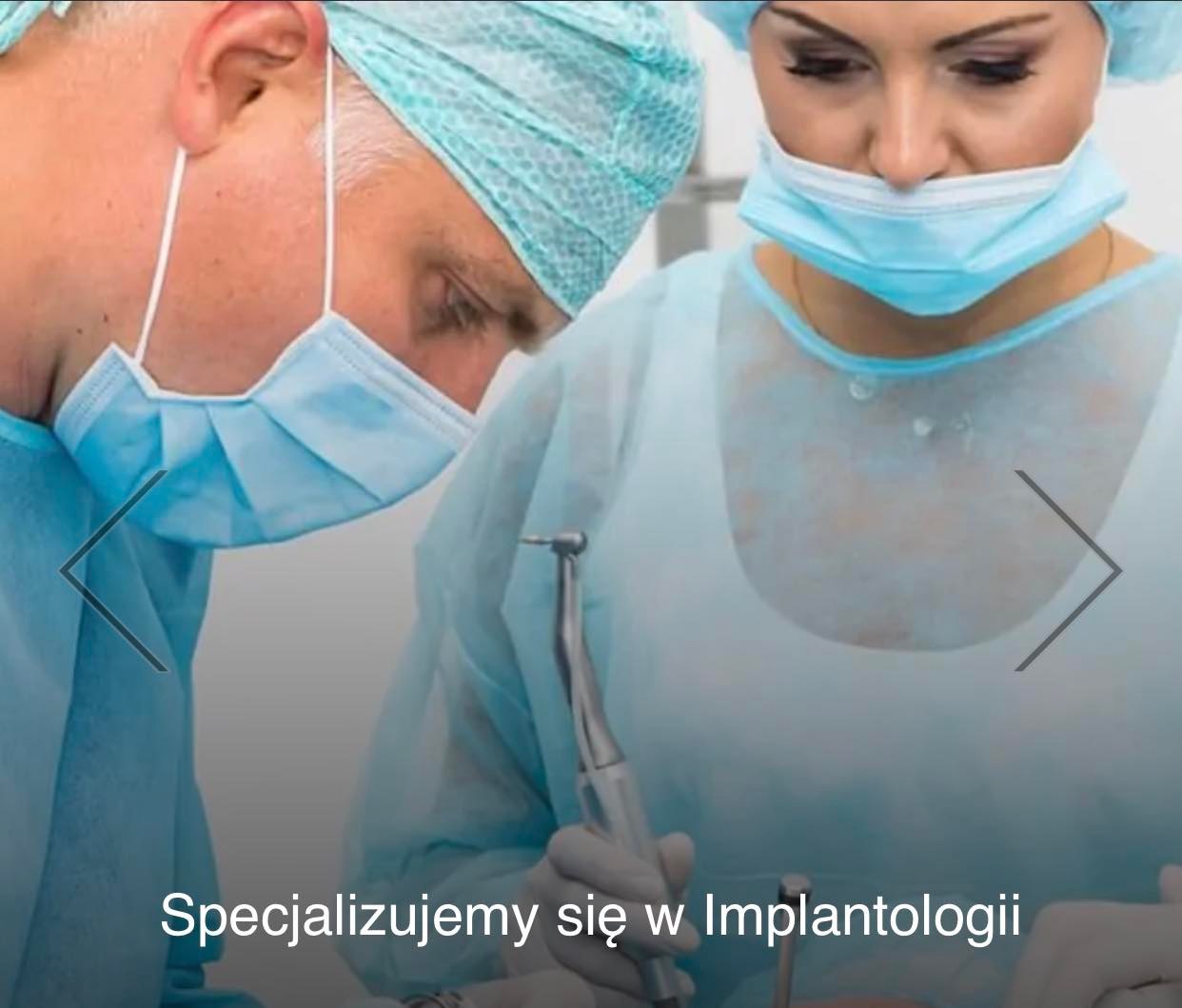Implants – worth knowing!
Dentysta stomatolog Warszawa Ursynów ADENTIS / Information and advice / Dental advice / Implants – worth knowing!

Who can have implants?
Implants can be implanted in all generally healthy adults who have the appropriate amount and quality of bone in the place where the implant is planned to be placed:
- adults – the condition for undertaking such treatment is the completion of development and complete formation of the jaw bones,
- generally healthy people – general health has a significant impact on the success of treatment; past or present general diseases such as: unstabilized diabetes, cancer, blood diseases, osteoporosis, etc. have a negative impact on the process of osseointegration (implant healing) and wound healing;
- people with the appropriate amount and quality of bone – normal, healthy bone tissue is the basis for the implant, the success of treatment largely depends on its quantity and quality.
The problems are: atrophy of the alveolar process and insufficient implant space.
These are not insoluble problems – modern methods of pre-implantation surgery come to our aid in such situations.
In order to maintain the highest standards and for the comfort and safety of the patient.
The implantation procedure is carried out under full aseptic conditions in a three-person team: Dr. Marek Rybicki – oral surgeon, surgical assistant – active assistance, dental assistant – passive assistance.
Is implantation painful?
The implantation procedure is performed under local anesthesia – it is therefore painless. However, thanks to the gentleness and precision of the surgical technique, its inconvenience for the patient is comparable to tooth extraction.
Can implants completely replace natural teeth?
Implant-based restorations allow for very good aesthetic results and effective restoration of chewing function. It is worth remembering that implant-based restorations are definitely the best solution, because only they provide the patient with lasting treatment results, comfort of use and are able to completely replace natural teeth.
What complications may occur after the procedure?
A properly performed implantation procedure, with favorable general conditions and conditions in the patient’s oral cavity, usually does not carry any risk. Commonly, after the implantation procedure, slight, temporary pain and swelling of soft tissues may occur. To prevent later complications, patients take antibiotics for a few days after the procedure.
What is the durability of implants?
The implant itself is indestructible. However, since it is an implant placed in a living organism, part of the reaction to a foreign body such as an implant depends on the condition of the user’s body. If during the use of the implant any general factors appear in the patient, for example diseases or addictions, then they may have a negative impact on the effect of the therapy. The issue of the prosthetic part, which is usually covered by a warranty, is different. As a material element, it may wear out, which requires periodic replacement of some of its parts, e.g. porcelain parts.
Is oral hygiene important?
Oral hygiene plays a very important role in the success of implant treatment. If dental implants are to serve their purpose for a long time, the patient’s task is to maintain exemplary oral hygiene. This sentence requires self-discipline and close cooperation with the doctor, and it begins right after the procedure – you should not eat for 2 hours, and it is advisable to avoid hot foods throughout the day. It is very important to avoid smoking (at least within 48 hours after the procedure) and limit foods that promote the accumulation of plaque. As contaminants accumulating around the implant, constituting a community of bacteria, may lead to the development of infection and, in extreme cases, to rejection of the implant, it is advisable to return to gentle tooth brushing as soon as possible. Rinsing your mouth with a disinfectant 203 times a day is helpful in care. This is just a start, but it is important that proper oral hygiene is maintained throughout the use of implant-based restorations. This is facilitated by regular attendance for professional tooth cleaning treatments, often combined with a follow-up visit.
How does cigarette smoking affect implant treatment?
Tobacco smoking impairs the ability of tissue regeneration, therefore it significantly reduces the chances of a positive prognosis regarding the acceptance and long-term maintenance of the implant. Smoking increases the risk of implant rejection fourfold. It also contributes to the easier deposition of difficult-to-remove deposits on teeth and prosthetic restorations.
Dr Aleksandra Gabren
Dr Walery Tarnawski

